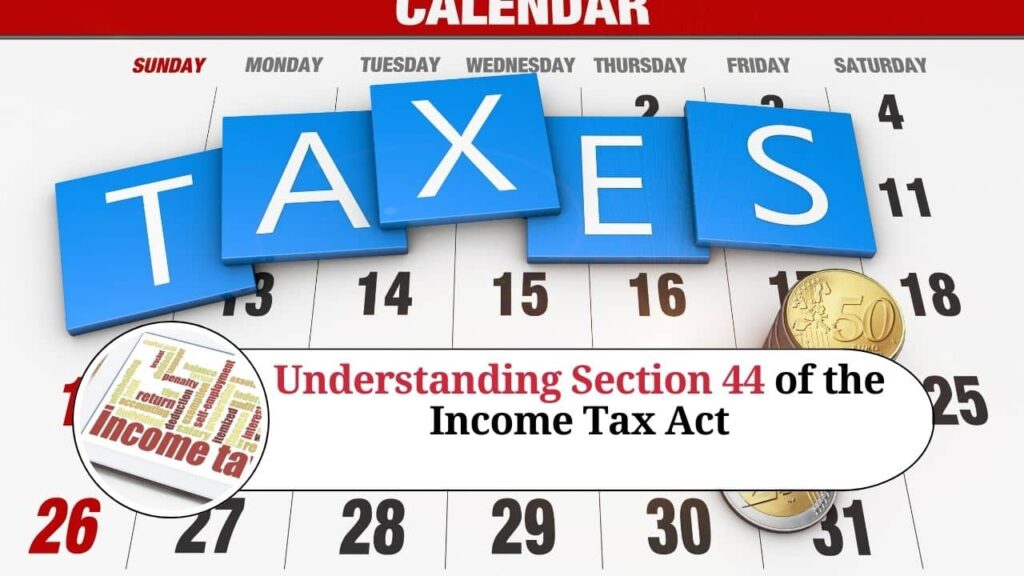Understanding Section 10(44) of the Income Tax Act: Income of the New Pension System Trust (NPS Trust)
When planning for retirement, securing financial stability through efficient savings and investments is crucial. In India, the New Pension System (NPS) has emerged as a popular retirement savings option. One of the key tax benefits associated with the NPS is outlined in Section 10(44) of the Income Tax Act. In this comprehensive blog post, we will delve into the details of this provision and its implications for taxpayers.
What is Section 10(44) of the Income Tax Act?
Section 10(44) of the Income Tax Act provides an exemption for any income received by any person for or on behalf of the New Pension System Trust (NPS Trust). This means that the income managed and distributed by the NPS Trust is not subject to income tax, providing significant benefits to the contributors of the NPS.
The Establishment of the NPS Trust
The NPS Trust was established on February 27, 2008, under the Indian Trusts Act, 1882 (2 of 1882). The primary role of the NPS Trust is to manage the assets and funds under the NPS, ensuring that the contributions made by individuals are effectively invested and managed to provide a secure pension post-retirement.
Key Features of Section 10(44)
Tax Exemption:
The primary feature of Section 10(44) is the exemption of any income received by the NPS Trust from income tax. This exemption applies to all types of income that the Trust might earn, whether from investments, interest, or any other sources.
Beneficiaries:
The beneficiaries of this tax exemption are the contributors to the NPS. Since the Trust’s income is exempt from tax, the returns on their contributions are maximized, providing them with better financial security upon retirement.
Purpose and Objective:
The tax exemption aims to promote long-term retirement savings among Indian citizens. By ensuring that the income generated by the NPS Trust is not taxed, the government encourages more individuals to participate in the NPS.
Benefits of the Exemption Under Section 10(44)
Enhanced Returns:
Since the NPS Trust’s income is exempt from tax, the returns on investments made by the Trust are higher. This directly benefits the contributors, as their pension corpus grows more efficiently.
Encouragement to Save:
The tax exemption serves as a significant incentive for individuals to save for their retirement through the NPS. This is aligned with the government’s objective of providing financial security to retirees.
Efficient Fund Management:
With the tax exemption in place, the NPS Trust can focus on efficient fund management without worrying about the tax liabilities on its income. This ensures that the Trust can adopt the best investment strategies for optimal returns.

Who Can Avail the Benefits?
Any individual contributing to the NPS can avail of the benefits of the tax exemption under Section 10(44). This includes employees of both the public and private sectors as well as self-employed individuals. By participating in the NPS, these individuals can ensure that their contributions are invested in a tax-efficient manner.
In-Depth Look at the NPS Trust’s Functions
The NPS Trust is a critical component of the New Pension System, functioning as the custodian of the pension assets. Its responsibilities include:
Asset Management:
The NPS Trust oversees the management of the pension assets, ensuring that the contributions are invested in a diversified portfolio. This includes investments in government securities, corporate bonds, and equity, which are managed by professional pension fund managers.
Regulation and Compliance:
The Trust ensures that all regulatory guidelines set by the Pension Fund Regulatory and Development Authority (PFRDA) are followed. This includes compliance with investment norms and maintaining transparency in operations.
Record Keeping:
Maintaining accurate and up-to-date records of contributions, investments, and payouts is another crucial function of the NPS Trust. This ensures that contributors have clear visibility into their pension accounts.
Disbursement of Pensions:
The Trust is responsible for the timely disbursement of pensions to retirees, ensuring that they receive their benefits without any delays.
Tax Implications for NPS Contributors
The tax benefits of investing in the NPS extend beyond the exemption provided under Section 10(44). Here are some additional tax advantages:
Section 80C:
Contributions to the NPS qualify for tax deductions under Section 80C of the Income Tax Act, up to a limit of Rs. 1.5 lakh per annum. This helps reduce the taxable income of contributors.
Section 80CCD(1B):
An additional deduction of up to Rs. 50,000 is available under Section 80CCD(1B) for NPS contributions, further enhancing the tax savings.
Section 80CCD(2):
Employer contributions to the NPS are also eligible for a tax deduction under Section 80CCD(2), which is limited to 10% of the employee’s salary (basic + DA). This benefit is over and above the deductions available under Section 80C and 80CCD(1B).
Comparison with Other Retirement Savings Schemes
When comparing the NPS with other retirement savings schemes like the Public Provident Fund (PPF) and Employee Provident Fund (EPF), the following points stand out:
Tax Benefits:
While PPF and EPF offer tax benefits, the additional deductions available under Section 80CCD(1B) and Section 80CCD(2) make the NPS a more attractive option for higher tax savings.
Investment Flexibility:
The NPS provides greater investment flexibility with options to allocate funds across various asset classes, including equities, which can potentially offer higher returns compared to the fixed interest rates of PPF and EPF.
Withdrawal Rules:
The NPS has more stringent withdrawal rules compared to PPF and EPF, which can be a consideration for individuals looking for more liquidity. However, the systematic withdrawal plan ensures a steady income post-retirement.
FAQ About Section 10(44) of the Income Tax Act
Q1: What is Section 10(44) of the Income Tax Act?
A1: Section 10(44) of the Income Tax Act provides a tax exemption for any income received by any person for or on behalf of the New Pension System Trust (NPS Trust).
Q2: When was the NPS Trust established?
A2: The NPS Trust was established on February 27, 2008, under the provisions of the Indian Trusts Act, 1882.
Q3: What type of income is exempt under Section 10(44)?
A3: All types of income received by the NPS Trust, including investments, interest, and other sources, are exempt from income tax under Section 10(44).
Q4: Who benefits from the tax exemption provided by Section 10(44)?
A4: Contributors to the NPS benefit from this tax exemption, as it ensures that their contributions and returns are not taxed, maximizing their retirement savings.
Q5: Why was the tax exemption under Section 10(44) introduced?
A5: The tax exemption was introduced to encourage long-term retirement savings among Indian citizens by ensuring that the income generated by the NPS Trust is not taxed.
Q6: Can self-employed individuals benefit from this exemption?
A6: Yes, self-employed individuals, along with employees of both public and private sectors, can benefit from the tax exemption under Section 10(44) by participating in the NPS.
Q7: How does the exemption under Section 10(44) enhance returns for NPS contributors?
A7: Since the NPS Trust’s income is exempt from tax, the returns on investments made by the Trust are higher, which directly benefits the contributors by growing their pension corpus more efficiently.
Conclusion
Section 10(44) of the Income Tax Act plays a pivotal role in promoting the New Pension System in India. By providing a tax exemption for the income received by the NPS Trust, the provision ensures that the contributors receive maximum returns on their investments, thereby securing their financial future post-retirement. For anyone planning their retirement savings, understanding the benefits of this provision is crucial.
For more detailed insights and information on other tax-saving strategies, visit Smart Tax Saver.


Leave a Reply